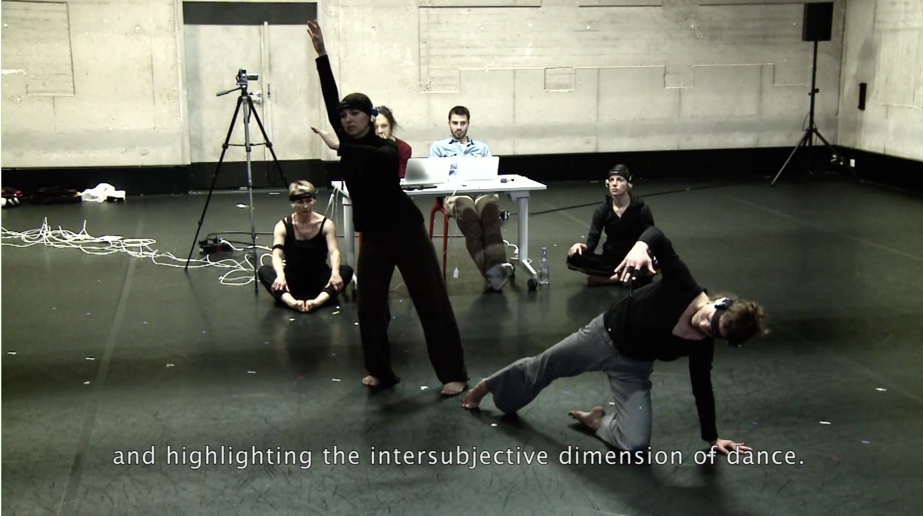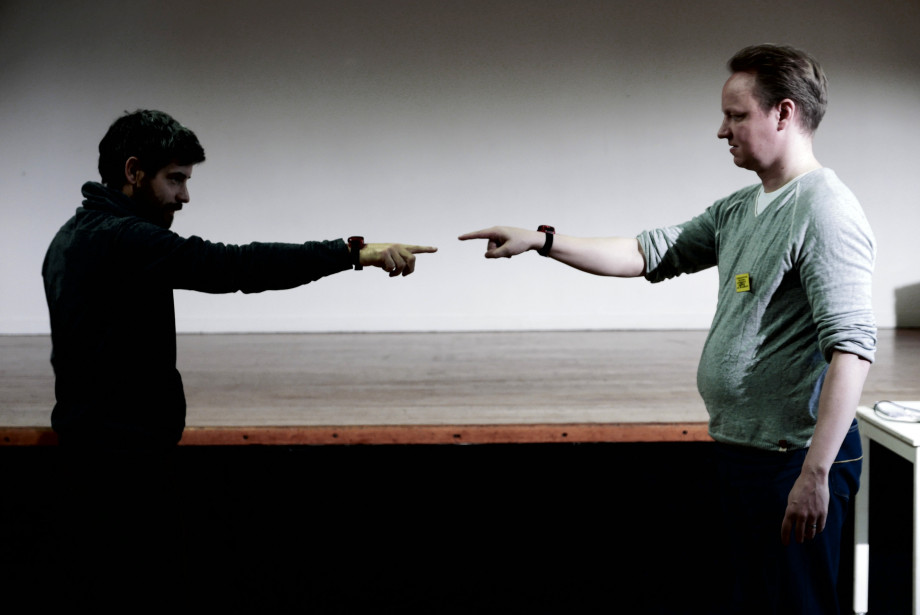
The Joint Improvisation Lab (ICI is the French acronym) and Labodance are innovative collaboration between researchers in cognitive neuroscience, dancers, philosophers and specialists in Human Machine Interaction, to form a shared platform for the online development of physiological and neurophysiological measures of dancer-dancer, dancer-choreographer and dancer-spectator interactions. This platform is used to study the cognitive processes that underlie artistic production and reception, as well as as a tool for research and choreographic composition.

ICI is directed by Asaf Bachrach. Drawing on his background as a Neuroscientist and CI teacher, he is working to combine them, create a lab environment for neuro, dance, and philosophy inquiry together. This has resulted in the concept of Group Improvisation Games (GIGs) that preserve meaningful improvisation. ICI considers that long-term improvisers may be different than non-improvisers, and that working with neurodiverse groups can learn from difference to unsettle typicality. ICI hosts a number of happenings and retreats for inventing GIGs, concepts, experiments in moving together, and discussion forms.
Effects and structures of the interaction between individuals in situ remain minimally tested by the cognitive sciences. The sociocultural existence underlie nevertheless our understanding of the world, our feelings and our motricity. The ICI project leans on the model of the joint improvisation in dance to analyze these interactive processes, by accompanying the dance workshop in the CNSAD and with the general public. In the intersection of art and science, the ICI project suggests feeding the scientific research of the expertise of the artists, and consider the artistic practice as a natural laboratory to study social interaction. By which ways the dancers succeed in giving themselves jointly a “grammar” for their interactions ( Synchronicity, emotional / attentive tuning)? What is the consequence on their state, and longer-term on their emotional and neuro-cognitive skills? What to conclude from it on the social interaction generally? [from the ICI website]
general aims of first Joint Improvisation Meeting:
We understand joint improvisation as an artistic form involving two or more performers engaging in multiple real-time interactions: with each other, with the audience and with the emerging content. Improvisers freely explore, within some boundaries, a large space of possibilities for new joint discoveries.
While joint improvisation has long standing history in dance, music and theatre, its scholarship as a unified phenomenon, in particular from a scientific perspective, is still in its infancy. Moreover, the perspective of joint improvisation is useful in studying a range of human phenomena beyond the boundaries of the artistic arena, including conversation, scientific co-discovery and the dynamics of groups operating in emergency situations.
The “Science of Joint Improvisation” meeting aims to bring together researchers from a number of different fields to establish a rigorous study of joint improvisation. First, the conference will bring together researchers that currently apply a scientific approach to study joint improvisation, using different paradigms – verbal report analysis, kinematic measurements, brain imaging and mathematical modeling. Second, the conference is open to researchers from different subfields of cognitive and behavioral sciences, social sciences and philosophy that study topics highly related to group improvisation, such as group creativity, aesthetic perception, linguistics, kinesthetic empathy and the human ‘mirror system’. We also see joint improvisation as a specific case of joint action, and look forward to contributions of experts from this growing field. Contributions from practitioners of improvisation will also be welcome.
The aim of this meeting is to foster scientific investigation of joint improvisation as a unique phenomenon, and as a rich novel ground for an ecological study of a number of central questions regarding human nature. The workshop is supported by the DIM cerveau & pensée (Ile de France).
full program description of the first meeting: very inspirational